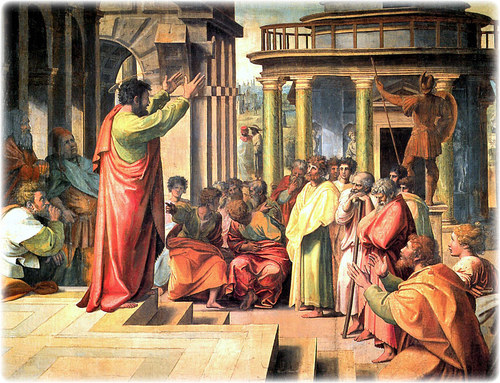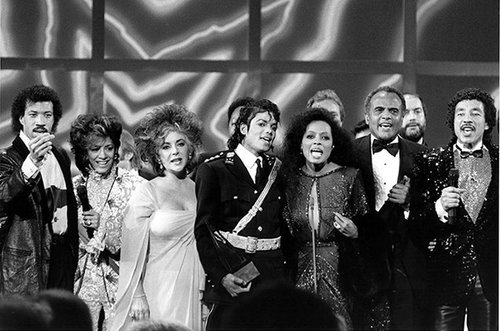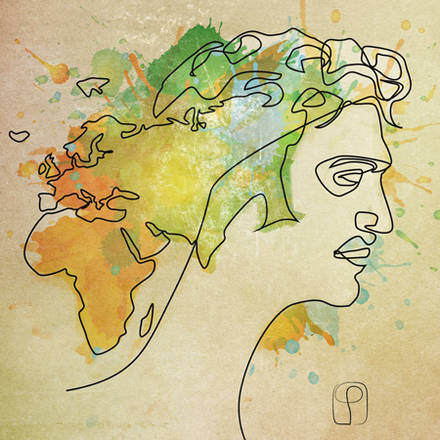
“What does this babbler wish to say?”
Quote from an unknown Stoic or Epicurean philosopher, Aeropagus, circa 50-51 A.D., Acts 17:17
Though the United Nations calls it “World Philosophy Day,” as Christians we can recognize it for what it really is. It’s the day the godless, being-given-up-in-Romans-one-style-judgment world extols itself for its self-perceived intelligence, in whatever form that may take. World Philosophy Day, which was introduced by the UN in 2002 and is officially celebrated on the third Thursday of November, has become, according to the UNESCO website, a “3-day celebration.”
Coming directly on the heels of the International Day for Tolerance, celebrated on November 16, World Philosophy Day has all the accoutrements of discretion-void, humanistic pomposity to which the Apostle Paul warned Timothy, those “lovers of self” who are “always learning and never able to arrive at a knowledge of the truth.” (2 Timothy 3: 2- 7). The world may call it a celebration of human knowledge and truth, but believers can really consider it a call to spiritual warfare, understanding with Paul that it truly represents an opportunity to “take every thought captive.”
For though we walk in the flesh, we are not waging war according to the flesh. For the weapons of our warfare are not of the flesh but have divine power to destroy strongholds. We destroy arguments and every lofty opinion raised against the knowledge of God, and take every thought captive to obey Christ, being ready to punish every disobedience, when your obedience is complete. 2 Corinthians 10: 3-6
UNESCO’s grand poobah – their title for her is actually Director-General – wrote a message about this day in which knowledge is to be lauded for the sake of knowledge, a day in which any and all proclamations of alleged truth are to be treated with equal respect. Essentially, if you claim to have some truth, you’re invited to tolerantly co-exist with all others who claim to have some truth, even if those truths may be defiantly, blatantly incongruous.
While it wouldn’t shock any believer these days, since most philosophy is tied to some false form of religious expression (excepting, of course, the one based on John 14:6), World Philosophy Day effectively entreats the blood-thirsty, wild-eyed savages of ISIS to share a kum-ba-yah moment on a prayer rug with the throne-sitting prince of apostasy of the Tiber (a/k/a Pope Francis.) as the lyrics of “We Are The World” waft gently in the background. There’s certainly nothing wrong with hugging a heretic if, while doing it, you’re whispering the truth of the Gospel in their ear, exhorting them to “repent and believe.” (Mark 1:15)
“This year, we celebrate World Philosophy Day immediately after International Day for Tolerance. This coincidence is deeply significant, given the link between tolerance and philosophy. Philosophy thrives on the understanding of, respect and consideration for the diversity of opinions, thoughts and cultures that enrich the way we live in the world. As with tolerance, philosophy is an art of living together, with due regard to rights and common values. It is the ability to see the world with a critical eye, aware of the viewpoints of others, strengthened by the freedom of though, conscience and belief.” Irina Bokova (Source)
While much Scripture could be correctly cited to refute the fallacy of the Director-General’s assumptions, perhaps the Christian should best stick with Paul’s advice, given to Timothy and, by extension, us: “Avoid such people.” (2 Timothy 3:5)
 But the grand wizard for world unity at UNESCO, promoting the yearning of oneness for humanity in some sort of ethereal, blissful nirvanic state of man-exalting Xanadu, continued in her commentary about the importance of this 3-day celebration.
But the grand wizard for world unity at UNESCO, promoting the yearning of oneness for humanity in some sort of ethereal, blissful nirvanic state of man-exalting Xanadu, continued in her commentary about the importance of this 3-day celebration.
“For all these reasons, philosophy is more than an academic subject; it is a daily practice that helps people to live in a better, more humane way. Philosophical questioning is learned and honed from the youngest age, as an essential key to inspiring public debate and defending humanism, which is suffering the violence and tensions in the world. Philosophy does not offer any ready-to-use solutions, but a perpetual quest to question the world and try to find a place in it. Along this road, tolerance is both a moral virtue and a practical tool for dialogue. It has nothing to do with the native relativism that claims everything is equally valid; it is an individual imperative to listen, all the more striking because it is founded on a resolute commitment to defend the universal principles of dignity and freedom.” Irina Bokova
Wow. Well, if you’re a Bible-centered believer (and if you’re not, you should be. See John 8:31), you won’t find those comments shocking. We’ve been brought from darkness into light (Colossians 1:13), so we can view these seemingly noble ambitions for what they are, a striving after wind. “The god of this world has blinded the minds of the unbelievers, to keep them from seeing the light of the gospel of the glory of Christ, who is the image of God.” (2 Corinthians 4:4)
But, in the kum-ba-yah spirit, I’d like to quote a more contemporary source that I would normally not use, one who differs substantially from the Biblical form of reformed faith to which I seek to adhere. However, his pithy quote seems particularly poised to respond to this pervasive spirit of tolerance which the entire world seems to laud and worship like some idolatrous golden bovine at the foot of Sinai.
“Tolerance is the virtue of the man without convictions.” G.K. Chesterton
Christians don’t celebrate World Philosophy Day or the International Day of Tolerance because we understand the blinded souls who do so have no hope apart from the Gospel, the power of God for salvation. (Romans 1:16) We know, with Christ, that He came not touting peace, love, and co-existence, but that He came with a gospel that divinely, intentionally, divides.
Do not think that I have come to bring peace to the earth. I have not come to bring peace, but a sword. For I have come to set a man against his father, and a daughter against her mother, and a daughter-in-law against her mother-in-law. And a person’s enemies will be those of his own household. Whoever loves father or mother more than me is not worthy of me, and whoever loves son or daughter more than me is not worthy of me. And whoever does not take his cross and follow me is not worthy of me. Whoever finds his life will lose it, and whoever loses his life for my sake will find it. Matthew 10:34-39
For believers, then, our single response to the pompous, arrogant celebrations of tolerance and human wisdom embarked upon by the pagan, “condemned already” (John 3:18) world is to share with them that single, exclusive, intentionally divisive, but eternally rewarding, truth found solely in the Gospel.
Instead of hugging and affirming your nearest Buddhist, Hindu, Stoic, or Epicurean in the folly of their darkened, godless thoughts, respond as Paul did that day on an Athenian hilltop:
“The times of ignorance God overlooked, but now he commands all people everywhere to repent, because he has fixed a day on which he will judge the world in righteousness by a man whom he has appointed; and of this he has given assurance to all by raising him from the dead.” (Acts 17:30-31)
[Contributed by Bud Ahlheim]










